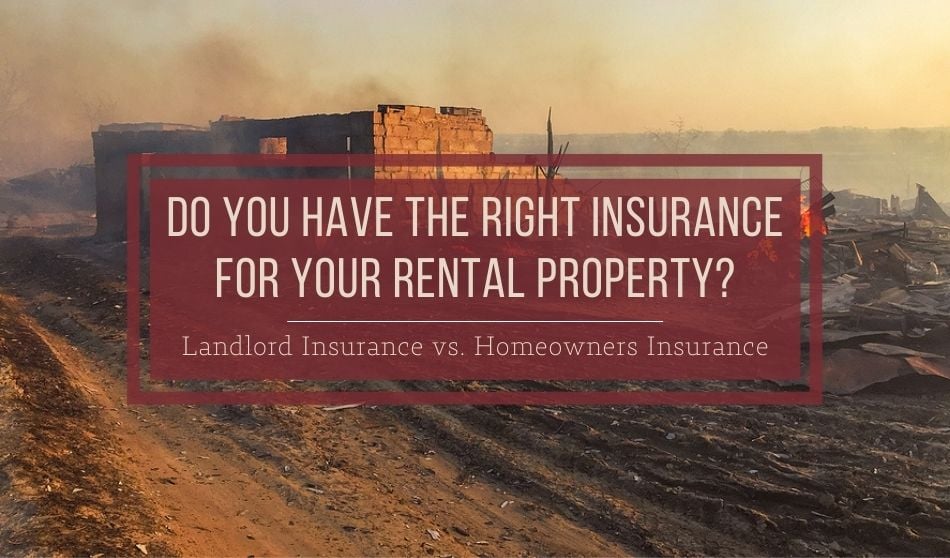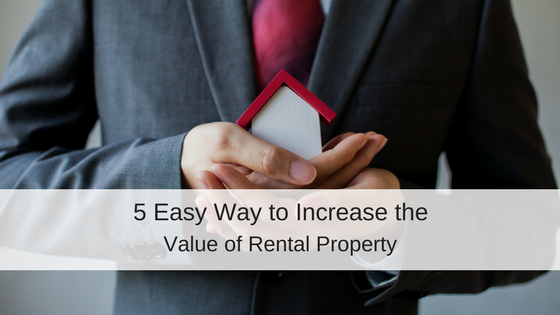 Insurance policies designed specifically for landlords provide added protection for financial loss and obligations associated with your rental properties.
Insurance policies designed specifically for landlords provide added protection for financial loss and obligations associated with your rental properties.
While some landlords assume they can rely on their standard homeowners insurance to cover their rental units, homeowners coverage it usually not sufficient to protect an investment property.
Landlord vs. Homeowners Insurance – What’s The Difference?
Homeowners insurance covers owner-occupied homes while landlord insurance covers liability and damages connected to tenant-occupied homes.
Depending on the insurance company you work with and the options you choose, your policy may consist of some or all these types of insurance coverage:
Types of Insurance Coverage
Dwelling Coverage – covers structural damage to the rental property from things like fire, vandalism, or a broken water heater. The more expensive dwelling coverage policies will also cover damage caused to appliances or equipment on the property and damaged inflicted by malicious tenants.
Liability Coverage – provides coverage for expenses associated with injuries that occurred on your rental property that you are found to be legally responsible for.
Personal Property Coverage – covers damage to your personal items on the property (not your tenants’) like curtains or light fixtures. This is especially important if you rent out a furnished home.
Loss of Income Coverage – if your property becomes unlivable due to damage and you can no longer collect rent from tenants, some policies allow you to receive the lost rental income for a limited amount of time until it is rentable again. However, most standard landlord policies won’t cover the lost rent due to an eviction or missed rent payments by tenants.
Flood Coverage – beyond dwelling coverage, specific flood coverage can protect you from water damage caused by things like negligent plumbing issues, rain, or busted pipes.
Acts of Nature Coverage – dwelling coverage has further limitations to structural damage or total loss as the result of tornadoes, hurricanes, and earthquakes which is why acts of nature coverage is important to consider. Depending on your region you might need special protection to cover your property for instances like these.
Legal Fee Coverage – covers fees and costs of legal counsel if a tenant sues you or you need legal representation in court for owed rent money or ignored eviction notices.
Filing a Claim
Make sure you are appropriately protected in the event you need to file a claim for your rental property. Without landlord insurance, you may find your claim is denied under standard homeowners insurance. Landlord insurance is typically more expensive than homeowners insurance because landlords require more protection for their tenant-occupied property.
Cash Value vs. Replacement Costs
When choosing your landlord insurance policy consider language about cash value versus replacement costs. If your property is older, the cash value can be significantly less than the actual amount it costs to replace or rebuild damaged property.
Do I need every type of coverage option?
Not every landlord will choose to include every available coverage option in their policy. It is up to you to decide how much you want to spend on your premium in order to manage costs for damage or liability associated with your rental property. An insurance provider will be able to review these coverage options and more to help you find the best policy for your needs.
Not sure where to start? Rentec Direct has recently partnered with Steadily.
Steadily is a specialty rental property insurance company, exclusively focused on serving landlords and the properties they own. If you own a short or long-term rental property, you should have landlord insurance coverage. Landlord policies cover the dwelling structure itself, loss of rent, and premises liability for the landlord. You can also qualify for a discount by using a property management company for your investments.
They offer policies for single-family homes, quadplexes, and more. If you are buying a new property, have an upcoming renewal on your current properties, or want to check for a more competitive rate, you can learn more here: Get Started With Steadily
Insurance for Tenants
Landlord insurance only protects the owner’s property and covered belongings. Your tenants’ personal possessions are not covered under your policy. It is good standard practice to require tenants to have their own renters insurance, which is an inexpensive way for your tenants to protect themselves and cover the cost of damaged or stolen goods.






our lease requires them to name us as beneficiary in case their actions do damage, that our policy won’t cover, it also will pay our deductible. If a tenant can’t afford, it, we make it very clear our policy does not cover anything they own.
Thanks for the feedback Bonnie. A solid lease that outlines tenant obligations and responsibilities when it comes to can save you time and money if you ever get into a dispute with your tenant.
I think that when considering homeowners insurance it is important to go over all of the different coverage options to make sure that you get exactly what you want. If you skim over the different options and choose a lower package and something happens to your home, you will be out of luck. Some things are worth paying extra for to make sure that nothing goes wrong.
I began to rent my house without ever switching from my homeowners policy to a landlords policy. There was a fire and insurance has denied my claim because it was tenant occupied….any advice?
Do your tenants have renter’s insurance? If the fire was caused by the tenant, their insurance could help cover some of the costs.
I am in Arizona. My landlord requires us to pay the landlord insurance? Is this legal?
Hi Misty, I would need a little more clarification. Is the landlord requiring you purchase renter’s insurance naming them as additionally insured? If so, I believe that is acceptable. Or, are you saying they are purchasing business insurance or property insurance and then charging the tenants to reimburse them for that expense. If that’s the case, I would need to do a little more research or you could reach out to your local housing authority for assistance.